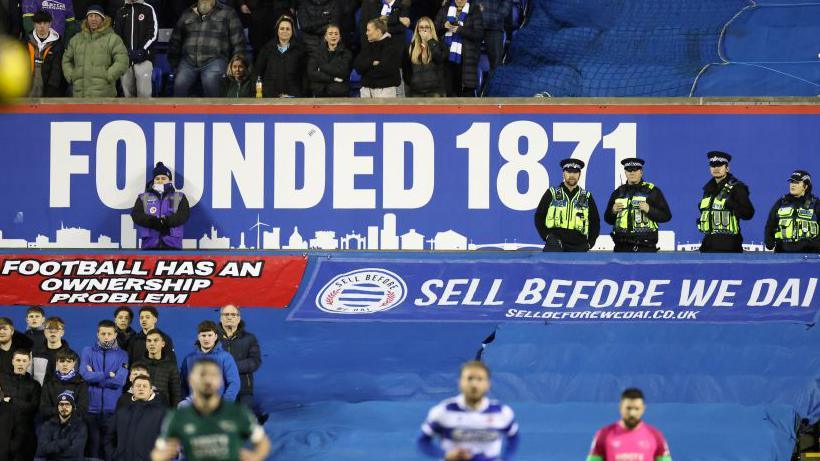Reading reveal they lost £21m in relegation season

Reading FC's belatedly submitted 2022-23 financial accounts revealed a pre-tax loss of £21.7m - over £4m more than the previous year
- Published
Reading lost more than £20m and spent more on wages than they made in income in the season they were relegated to League One, according to financial accounts submitted 12 months late.
The Royals were a year late in publishing accounts for the 2022-23 campaign, in which they were relegated from the Championship, and had been placed under the latest of several transfer embargoes by the English Football League for the past six months as punishment.
That ban has now been lifted, but could be reinstated if Reading fail to publish their 2023-24 accounts by 31 March.
The 2022-23 accounts, external showed the club had suffered pre-tax losses of £21.7m in the year to June 2023, up from £17m the previous financial year despite revenue increasing.
The belated release of Reading's financial reports comes with the club's future still in limbo, after owner Dai Yongge was given a deadline of 4 April to sell the Royals having been disqualified under the EFL's Owners' and Directors' Test.
Salary expenditure fell slightly but was still £24.5m, outstripping the club's income despite Reading dropping down to League One that season.
The club's relegation to the third tier of English football was thanks in part to being docked six points for breaching profit and sustainability rules.
They finished 17th in League One last season despite enduring several more points deductions, but are currently eighth in the division - two points off a play-off place - following a 10-game unbeaten run.
Multiple attempted takeovers have fallen through since Yongge committed to a letter of intent to sell the club in March 2024, with fans regularly staging matchday protests.
Not a model for shrewd accounting - analysis
BBC Radio Berkshire sports editor and Reading commentator Tim Dellor:
The EFL had imposed a transfer embargo because these accounts were filed late - they ought to have been submitted nearly a year ago.
Dai Yongge's controversial time running the club has been dominated by financial chaos. The total outgoing for salaries at the club dropped just half a million from £25m, so still an eye-watering amount for a squad that was relegated from the Championship down to League One during this accounting period.
Outgoings for wages were still more than total income, which is never going to be considered shrewd accounting.
By 4 April, Reading will need to be sold or they will be told they can't play any games while Yongge is still at the helm.
Reading have never had any success in play-off campaigns previously, so to finish in the top six but then not be permitted to even take part would be a new level of ridiculousness in this long-running saga.